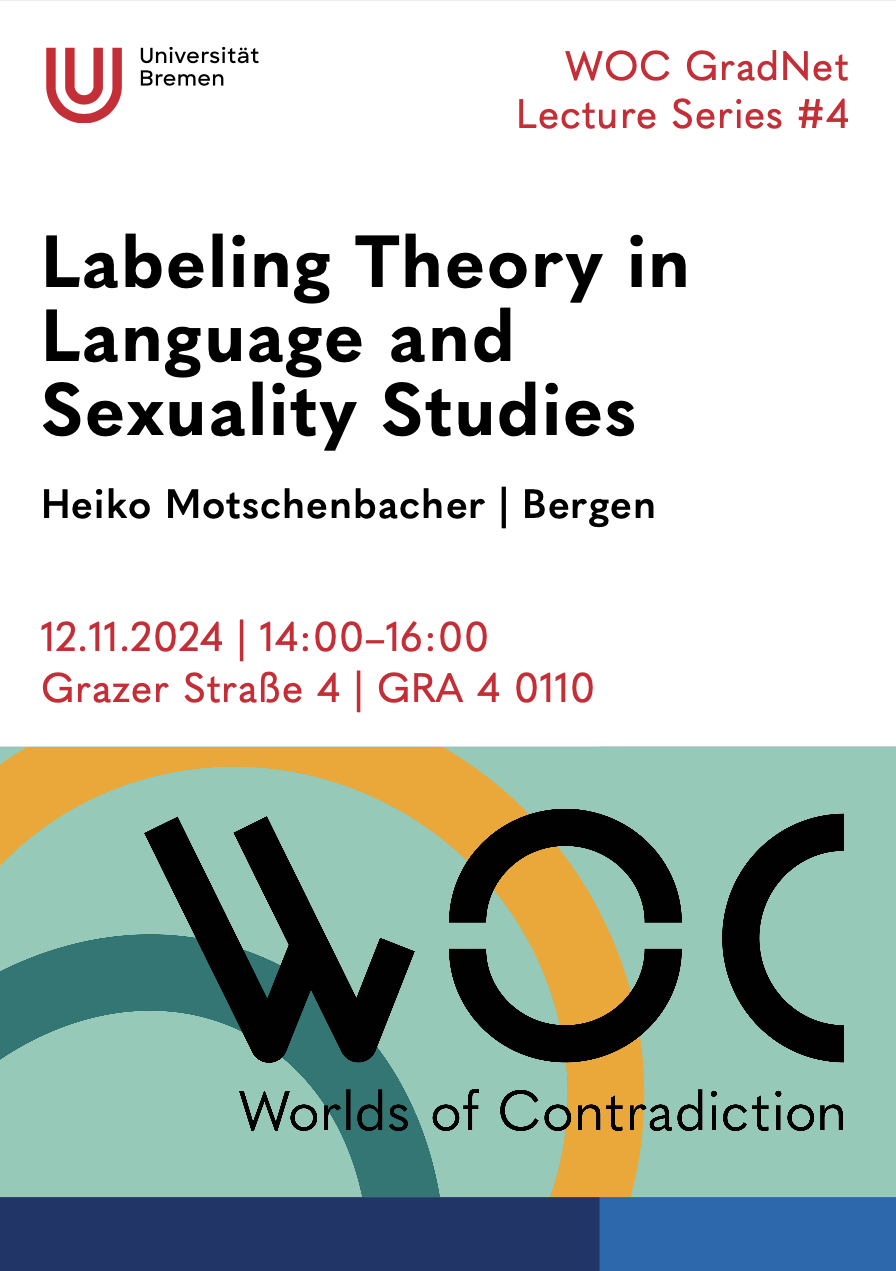
WOC GradNet Lecture #4: Labeling Theory in Language and Sexuality Studies
In his talk Heiko Motschbacher seeks to make a theoretical contribution to the field of language and sexuality (Motschenbacher 2022). His goal is to use the sociological approach of labeling theory (Becker 1963) to inform discussions in language and sexuality studies. On the one hand, it is argued that labeling theory has certain advantages that make it a useful tool for the analysis of language and sexuality (for example, its performative conceptualization of language, its grounding in social interactionism, its view of deviance as socially produced, and its ability to capture sexual normativity). On the other hand, it is pointed out that the approach has some weaknesses in its original form that would need to be addressed to make it suitable for studies on language and sexuality (its historical roots in the sociology of deviance, its failure to cover norm-conforming labeling and labeler motivations, and its neglect of linguistic insights). The importance of labeling in the field of language and sexuality is illustrated by a discussion of earlier studies on sexual labeling (e.g. Karr 1978), with studies adopting a social psychological perspective (e.g. Fasoli, Maass & Carnaghi 2015) and studies on self-labeling practices (White, Moeller, Ivcevic & Brackett 2018) playing a central role.
For questions and and digital participation contact trochemo@uni-bremen.de
References
- Becker, Howard S. (1963). Outsiders: Studies in the Sociology of Deviance. London: The Free Press of Glencoe.
- Fasoli, Fabio; Maass, Anne & Carnaghi, Andrea (2015). Labelling and Discrimination: Do Homophobic Epithets Undermine Fair Distribution of Resources? British Journal of Social Psychology 54 (2), 383–393.
- Karr, Rodney G. (1978). Homosexual Labeling and the Male Role. Journal of Social Issues 34 (3): 73–83.
- Motschenbacher, Heiko (2022). Linguistic Dimensions of Sexual Normativity: Corpus-Based Evidence. London: Routledge.
- White, Arielle E.; Moeller, Julia; Ivcevic, Zorana & Brackett, Marc A. (2018). Gender Identity and Sexual Identity Labels Used by U.S. High School Students: A Co-occurrence Network Analysis. Psychology of Sexual Orientation and Gender Diversity 5 (2): 243–252.